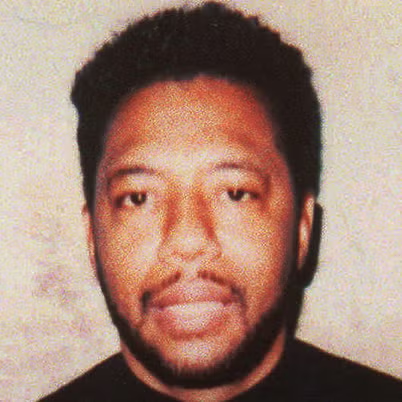
Table of Contents
Who Is Larry Hoover?
Larry Hoover is a prominent figure originally from Chicago, who became the leader of the Supreme Gangsters. This gang later merged with a rival group to form the Black Gangster Disciple Nation. In 1973, Hoover was convicted and sentenced to 150 to 200 years in prison for the murder of a drug dealer. Although he has attempted to present himself as a reformed individual, in 1995 he was indicted for allegedly continuing to direct gang activities from within prison.
Early Life and Rise in Gang Culture
Larry Hoover, commonly known as “King Larry,” was born on November 30, 1950, in Jackson, Mississippi. At the age of four, his family relocated to Chicago, Illinois. By the time he was thirteen, Hoover had immersed himself in street life with a group called the Supreme Gangsters, engaging in minor criminal activities such as theft and mugging. His criminal behavior soon escalated to more serious offenses including shootings and assaults.
Hoover rapidly ascended through the ranks of the Supreme Gangsters and eventually allied with rival gang leader David Barksdale, leading to the formation of the Black Gangster Disciple Nation. Following Barksdale’s injury in a shooting in 1969, Hoover assumed leadership of the Gangster Disciples. Under his leadership, the gang took control of the South Side drug trade, generating daily profits exceeding $1,000.
In his early twenties, Hoover faced multiple incarcerations and survived at least six assassination attempts. However, his criminal activities culminated in a significant legal setback when he and fellow Gangster Disciple Andrew Howard were charged with the murder of drug dealer William Young on February 26, 1973. Both were sentenced to 150 to 200 years in prison, with Hoover assigned to the maximum-security Stateville Correctional Center in Crest Hill, Illinois.
Despite his confinement, Hoover’s influence within Stateville expanded. He began providing protection to other inmates, who subsequently became loyal supporters and new recruits for the Gangster Disciples. His growing authority was recognized by the warden’s office, which began to view Hoover as a stabilizing force capable of managing riots and disturbances within the prison system.
Growth and Development
Inspired by the biography of Mayor Richard J. Daley, Hoover initiated a significant shift in the Gangster Disciples by discouraging violence and promoting education among his followers. He mandated that members of the Gangster Disciples pursue education, learn trades, and develop their talents and skills, aiming to enhance their societal standing. This reform led to the rebranding of the gang from “Gangster Disciple” to “Growth and Development.”
The reformation garnered positive attention from external observers. Under the banner of Growth and Development, Hoover’s organization established several nonprofit entities. These included initiatives to register voters, a music label supporting underprivileged children, a series of peaceful protests against the closure of public programs, and even a clothing line.
Despite these apparent efforts to reform, prison officials remained skeptical of Hoover’s intentions, viewing them as a potential strategy to secure his release and return to criminal activities. Advocates for Hoover’s parole highlighted his societal contributions, yet law enforcement agencies were convinced that he was merely devising new methods to extend his criminal enterprises. The Gangster Disciples had expanded to over 15,000 members across at least five states, with their drug-related profits reaching substantial figures, attributed to Hoover’s leadership.
Hoover’s subsequent transfer to the Vienna, Illinois prison revealed a high standard of living, including new clothing, expensive jewelry, gourmet meals, and private visits from friends and family. Authorities, growing increasingly suspicious, initiated wiretaps on Hoover’s communications and discovered that he was continuing to orchestrate the Gangster Disciples’ activities from within the prison.
Further investigation by informants uncovered that Hoover’s nonprofit organizations were, in fact, fronts for laundering drug money. Testimonies from Gangster Disciple members confirmed that none of the funds purportedly allocated to charitable causes were used for their intended purposes.
Indictment
On August 31, 1995, following a comprehensive five-year undercover investigation conducted by federal authorities, Hoover was formally indicted on charges related to drug conspiracy. Subsequently, he was transferred from his prison cell to the Metropolitan Correctional Center in Chicago to face trial.
In 1997, Hoover was convicted on all counts and was sentenced to six consecutive life sentences. He is presently incarcerated at the United States Penitentiary Administrative Maximum Facility in Florence, Colorado.
